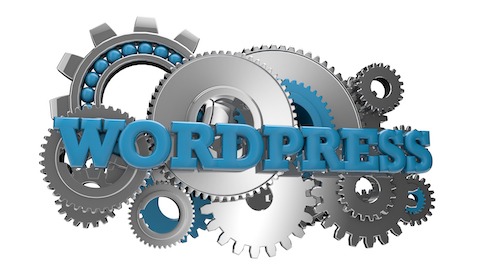For anyone who owns—or has ever owned—a smartphone, tablet, desktop or laptop computer, the mantra that is constantly hammered into us is “update, update, update.” Why? Simply put, the software and hardware we use every day and depend on like never before is constantly in a state of flux, with new features and improvements being added on a dizzying schedule.

But beyond the exciting new gadget and gizmos being folded in through regular updates, there are more crucial reasons to keep your programs and devices current: when an app, plugin or other program is created, it’s inevitable that there will be problems with performance, connectivity and, most importantly, with security. Enterprising and malicious hackers are always looking for cracks they can exploit with bugs and viruses, anything that gives them the ability to steal user’s most sensitive data or simply create a bit of annoying mischief.
When it comes to WordPress, the Holy Grail of do-it-yourself Content Management Systems (CMS), updating isn’t just a good idea: it’s a critical component of using the site in the most efficient and secure way. And it’s not just the base program that you should giving regular health checks to: with the plethora of plugins that accompany the tool, it’s important to make sure they’re also running on the most current versions. Indeed, there have been a host of scandals affecting WordPress plugins, not the least of which was the problem with a cross-site scripting (XSS) vulnerability that affected dozens of the programs and allowed hackers to gain access to sites through bypassing owner-controlled security protocols.
Tech professionals and Internet security specialists call out four main reasons why keeping WordPress updated at all times is important: security, performance, bug fixes and compatibility. Obviously, for most of us, security is of paramount importance. It seems that, because WordPress is so big—it’s makes up a quarter of the Internet at any one time—it’s naturally a target for those who want to insert malicious codes, steal personal data or simply disable sites. Happily though, because of its size and the fact that it’s an open-source program, vulnerabilities in security for the main operating program as well as the thousands of plugins are often caught early thanks to many eyes keeping a faithful watch. And when a hole or problem in security is detected, there are lots of people ready to deal with the problem quickly with a simple update that patches the leak.
Aside from the obvious importance of keeping your site safe and secure, there are other logical reasons to keep things updated all the time. For one, your site will simply perform better: your scripts will speed up, queries will run more efficiently and the overall experience for you and your visitors can be greatly enhanced. Also, regular updates ensure that any bugs in operating tools are fixed, such as those that allow you to do quick and easy updates and those that govern the plugins and themes upon which you rely. And when it comes to compatibility—that vital component that allows plugins to work with your platform and do all the cool things you wan to do—regular updates can make sure that, in a sense, everyone and everything is getting along with each other.
For anyone who sees updating their WordPress sites and accompanying plugins as a hassle, it’s important to know that the process is relatively painless. Simply visit the “Updates” tab via your Dashboard and do a regular check for what’s available. Thankfully, many minor plugins and themes update automatically, but you should also watch for those updates that require manual cues. Do this by checking the boxes labeled “Update Themes” or “Update Plugins,” but be sure to back up your site first in case there are any unforeseen problems, and always test everything immediately after the update to verify that all is working well and correctly. And if you took your site offline for a major update, do a test of your pages before going live again. Lastly, although it might sound slightly ironic, there are actually plugins available that can check for available updates and alert you, or that can simply do the work for you automatically so you don’t even have to bother.
In the end, there’s no reason to fear the almighty update: it’s the best way to make sure all the elements of your WordPress site are working at their most secure and efficient, and that all your hard work—as well as your personal information—is safe from bugs, viruses and the nasty hackers lurking in the virtual world.


